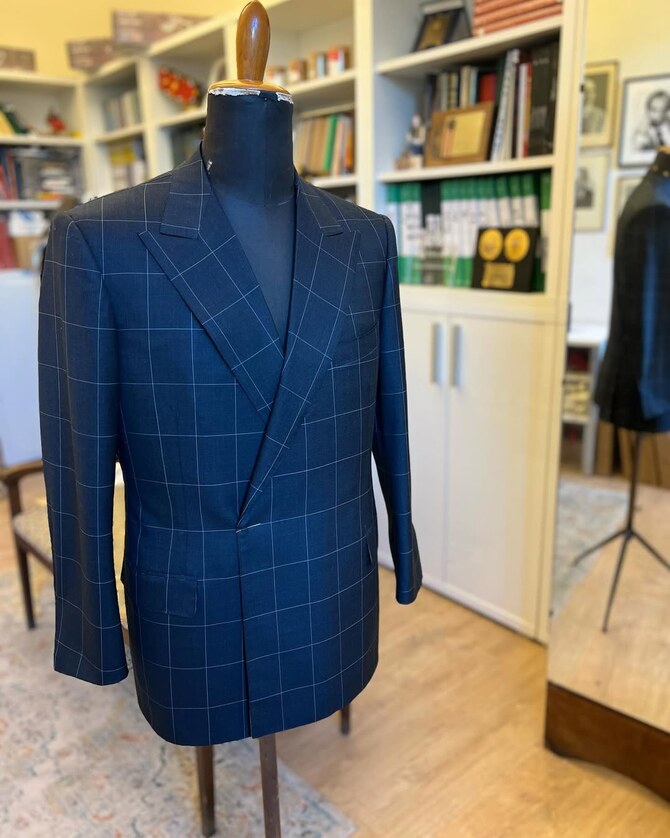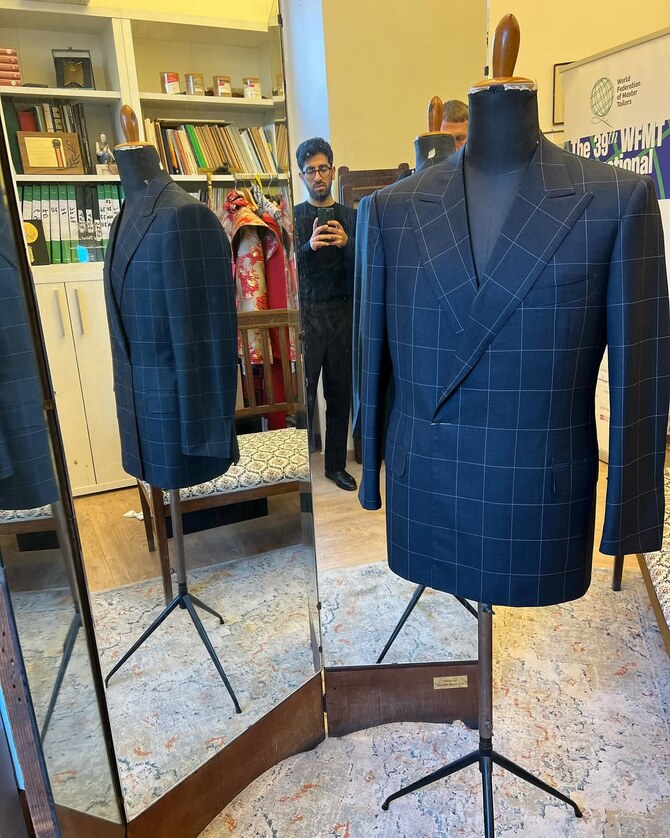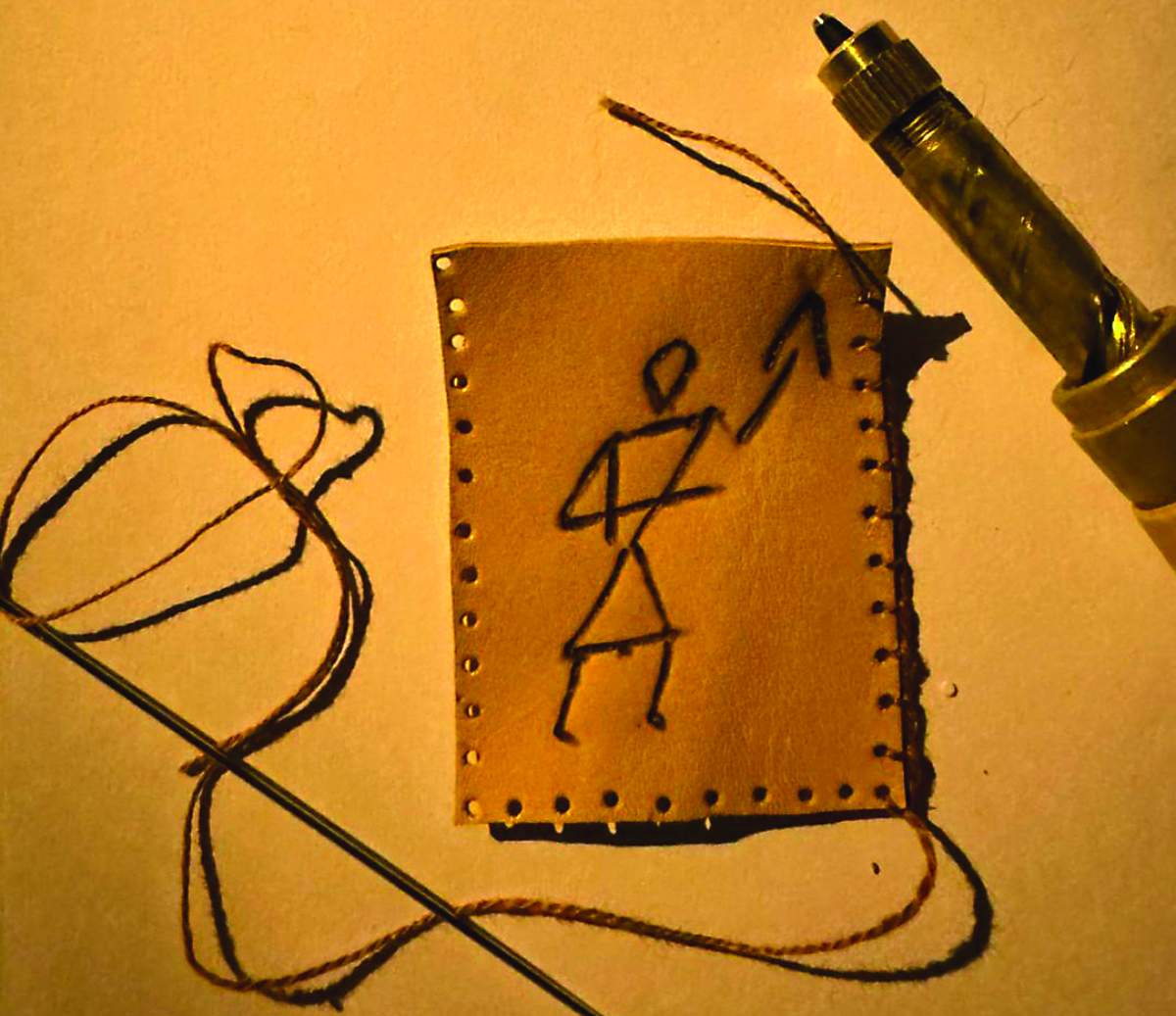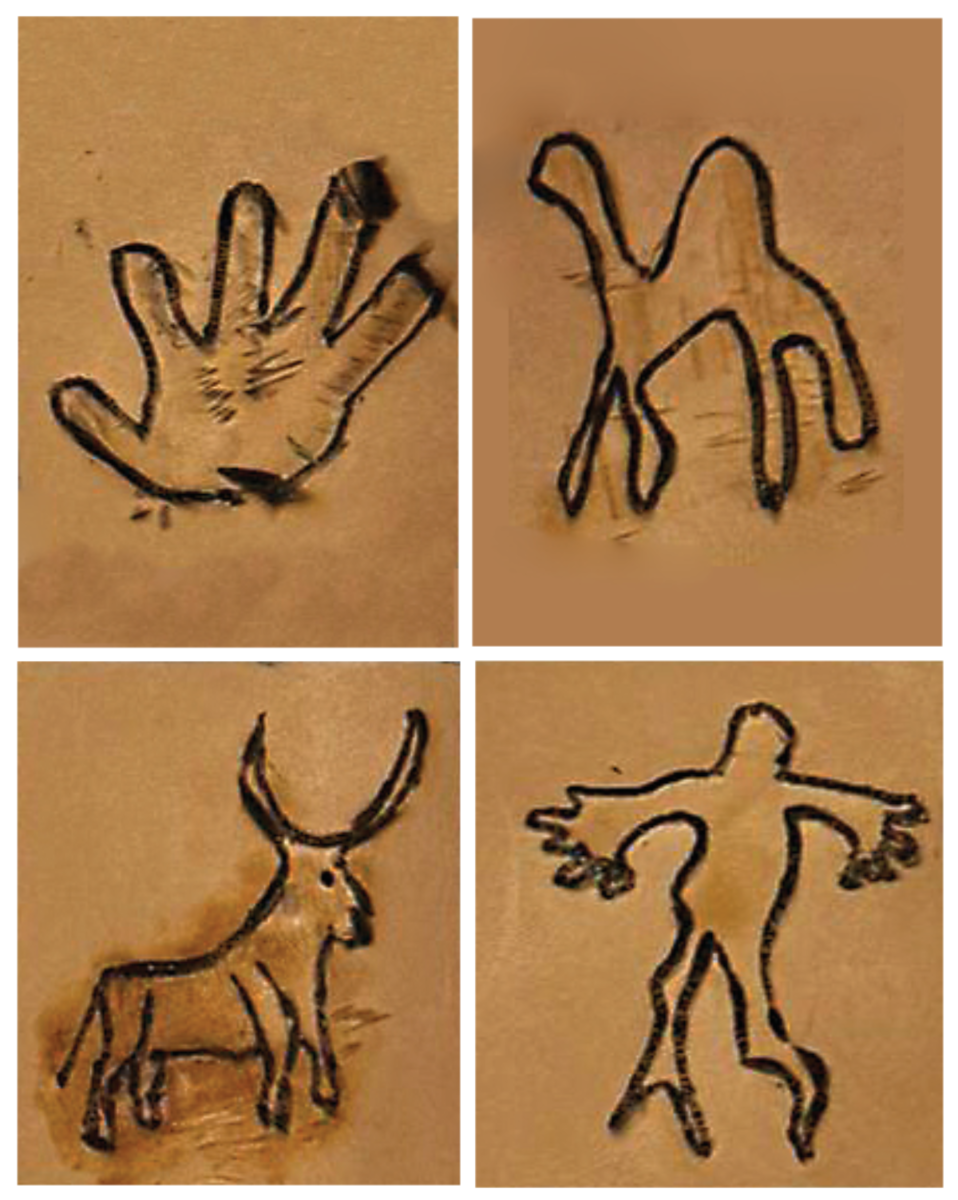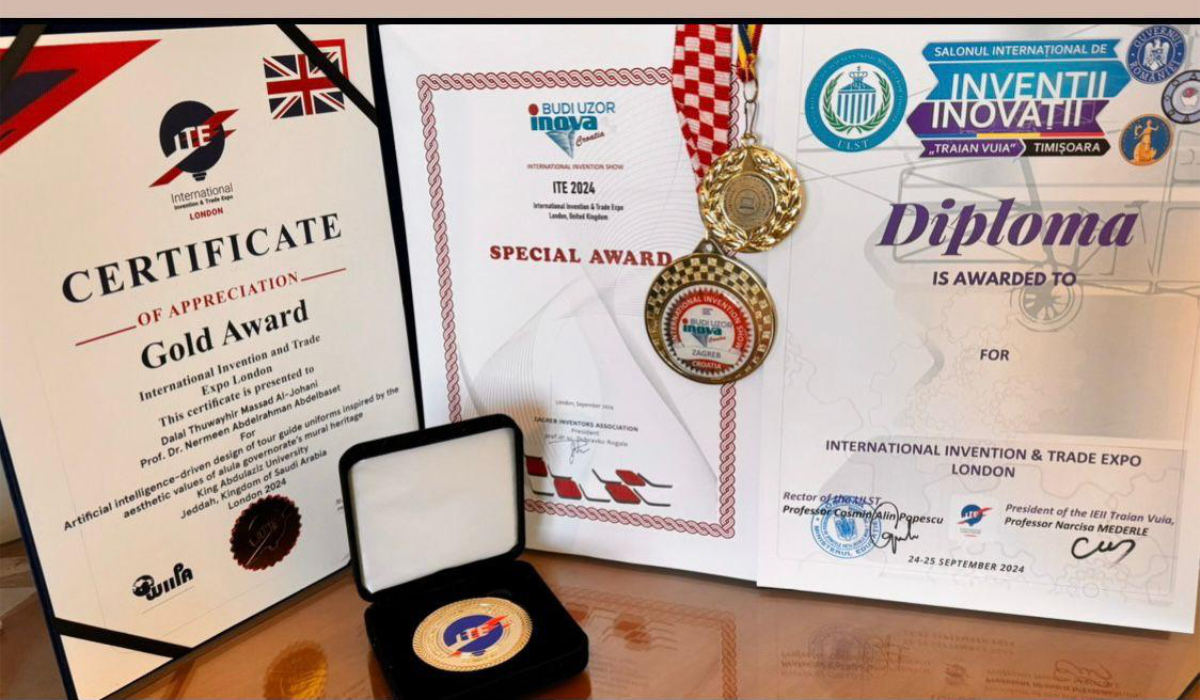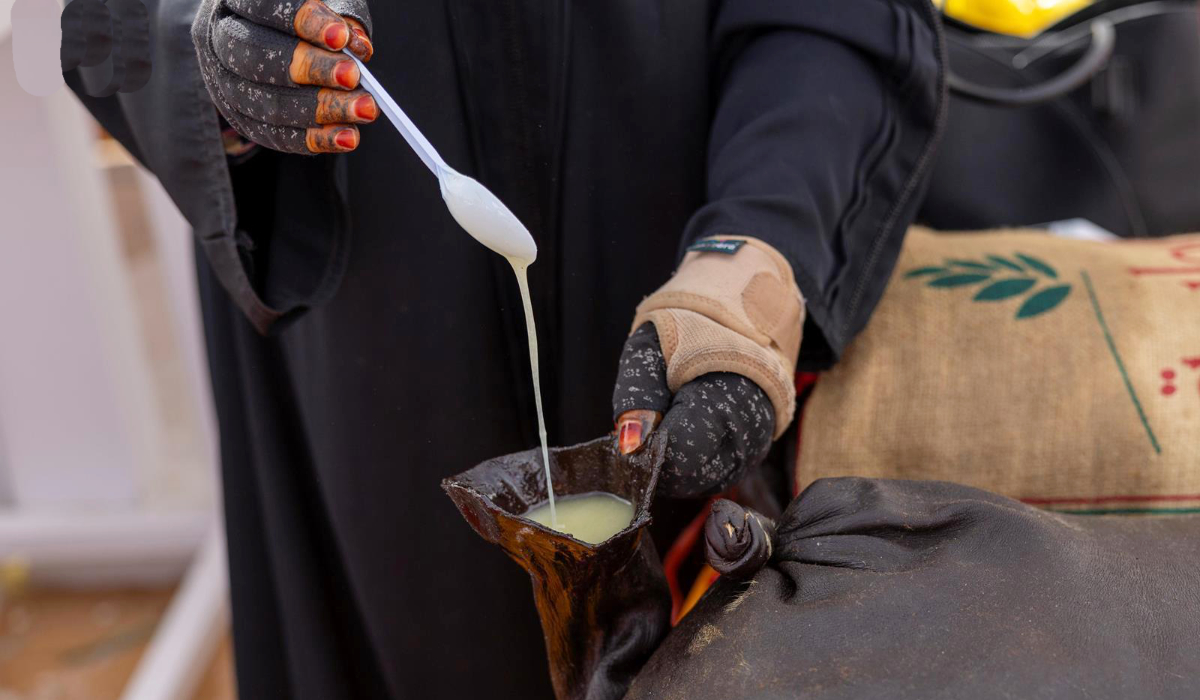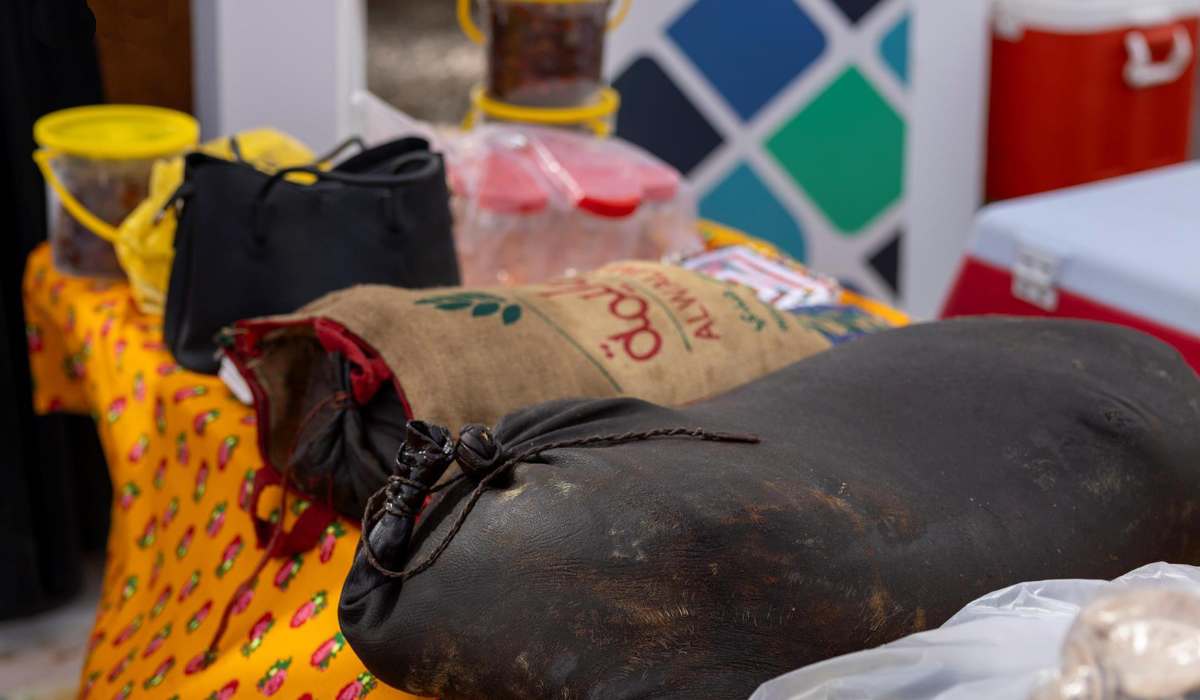RIYADH: Yousef Tammar is a 23-year-old Saudi bespoke tailor currently studying at one of the world’s oldest schools of its kind in Italy.
Currently enrolled at the Accademia Nazionale dei Sartori in Rome — a tailoring academy that traces its roots back to 1575 — the Jeddah native has gone on a personal journey, which reflects his deep commitment to craftsmanship.
Tammar’s passion for fashion was ignited at the age of 14. Initially driven by a desire to present himself well among family and peers, he soon found inspiration in the vast world of style through YouTube videos focused on men’s fashion. “Fashion became a way for me to express myself and connect with others,” he told Arab News.
Growing up in Saudi Arabia, where traditional garments such as the thobe dominate daily wear, Tammar’s early exposure to fashion was characterized by a limited variety of clothing. He noticed that deviating from the norm could attract unwanted attention.
But a pivotal moment in Tammar’s journey occurred during a family trip to Italy just before his final year of high school. This trip introduced him to the intricate world of tailoring and artisanal garment-making.
A visit to Fortela in Forte dei Marmi, where he met owner Alessandro Squarzi, opened his eyes to bespoke tailoring and niche ready-to-wear garments.
“Meeting Alessandro was like unlocking a door to a whole new world of fashion,” Tammar said. This experience solidified his interest in pursuing a career in the industry.
His choice to study in Italy was largely serendipitous; the right course in pattern-making and sewing happened to be available there.
Still, “Italy has this aura about it that makes you feel fashion in your bones,” he explained. Even if other options were available, he would still choose Italy for its rich fashion heritage and vibrant atmosphere.
Throughout his educational journey, Tammar learned valuable lessons that shaped his approach to tailoring. He described how he discovered a way to exceed his own limits, and learned the importance of maintaining composure during challenging times.
“Every challenge is an opportunity to grow,” he said.
The contrast between the Italian approach to tailoring and what he experienced in Saudi Arabia soon became clear.
In Italy, the emphasis is on handwork and artisanship, while the garments he encountered in Saudi Arabia were predominantly mass-produced, even in prestigious tailoring shops.
Saudi culture significantly influences contemporary fashion, particularly in menswear, where traditional styles tend to dominate.
“Mainstream Saudi culture keeps fashion somewhat dormant,” Tammar said, noting that the culture leans toward conventional shapes and cuts.
However, he sees potential in modernizing traditional Saudi garments, such as the thobe and daglah, incorporating them into contemporary designs.
The fusion of Western and Middle Eastern styles excites him, as it creates opportunities for innovative silhouettes and distinctive combinations. “Fusion can bring a refreshing perspective to fashion,” he said, emphasizing the importance of blending influences.
Studying abroad presented its own set of challenges for Tammar, particularly in terms of language. Learning Italian became essential for effective communication, but it was a challenge he embraced with enthusiasm.
“Learning a new language opened up a whole new world for me,” he said.
Another hurdle has been adjusting his sleep schedule to accommodate the demanding nature of his studies, which often see him working for 12 hours a day.
A highlight of his journey was designing a daglah for the Harrod’s Hive 2025 event in Riyadh. “Creating something for such a prestigious event was surreal,” he said.
Most rewarding, however, has been the realization of his aspiration to become a master tailor.
Looking ahead, Tammar aims to bring artisanship and luxury bespoke craftsmanship to Saudi Arabia.
“I want to create a space where tradition meets modernity,” he said, as he hopes to establish his own bespoke tailoring shop and start his own fashion line once he accumulates enough experience.
Tammar hopes to see a future in Saudi fashion characterized by locally made garments and fabrics. “We should aspire to be producers, not just consumers,” he said, envisioning a broader range of styles beyond the traditional.
Tammar describes his personal style as adaptive, varying based on occasion and mood.
“I believe in the power of versatility in fashion,” he said. His own style incorporates tailored elegance in some situations while opting for loose and comfortable fits for work.
While current trends may not capture his attention, Tammar still draws inspiration from his peers in the fashion world: “My classmates inspire me daily; we learn from each other.”
He said that his peers have had a significant influence on his approach to tailoring, including the designer, Noe Falchi, with whom he collaborated on a fashion show.
Speaking to aspiring tailors and designers in Saudi Arabia, Tammar emphasized the importance of devotion.
“You must be ready to commit fully to your goals,” he said, noting that success in the industry requires unwavering commitment.
He encouraged aspiring creatives to embrace change and remain open to growth, as adaptability is crucial in a dynamic field.
Sustainability is another cornerstone of Tammar’s philosophy. “We have a responsibility to promote sustainability in fashion,” he said. Each garment he creates is made to order, minimizing waste and ensuring that material consumption is carefully calculated.
Tammar’s journey demonstrates the power of passion, dedication and the fusion of different cultures, as he continues to carve out his path in the industry in Saudi Arabia and beyond.



